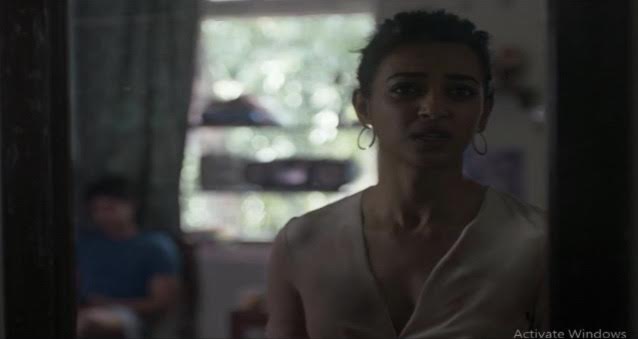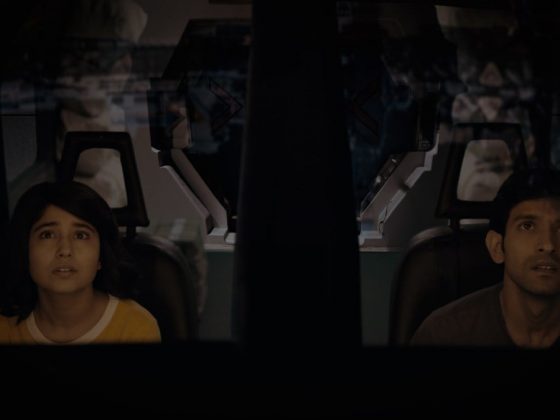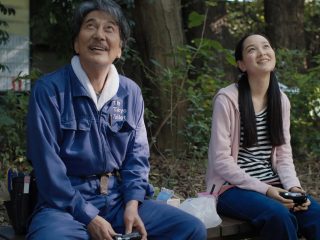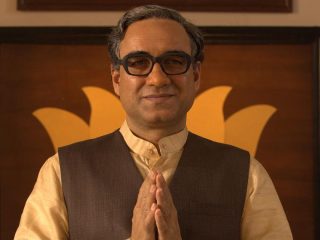(Contains Spoilers)
“Belief formation is often contingent on the outcomes that you want.” This is a key feature of power taken from Noam Chomsky’s seminal lecture on the Psychology of Power. Simply put, we choose to believe things that help our cause. Things that are convenient for us to believe. I think the constant application of this idea is what gave recurring motivation, emotional impunity, and even hope when needed to Radhika Apte’s character in Anurag Kashyap’s segment of Lust Stories (2018).
Kalindi (played by Radhika) is a college professor, who on an adventurous night out ends up sleeping with one of her students, Tejas.As the film progresses we learn that Kalindi is married to an older man, Mihir. The film constantly cuts back and forth between Kalindi doing something, to her commenting on what she just did.

On learning that Kalindi is married, we also realize that she cheated on her husband with Tejas. While commenting on her actions, she recounts a conversation with her husband. In said conversation he tells her that “she would resent him if she didn’t live her life on her own terms”. Kalind uses this statement of his to justify her being adulterous. As if to say that her cheating on him is what he wanted. Since the outcome – that she cheated on Mihir- could not be changed,she conveniently altered the connotation associated with cheating.
This pattern of restructuring her beliefs to suit her actions is present in multiple other instances in the film.
But the question is, why would one keep altering their beliefs? In this case, I believe because Kalindi is aware of the dissonance between what she says and what she does. She is aware that she is constantly contradicting her beliefs. So instead of acknowledging her shortcomings, she constantly contorts her
beliefs to give herself an emotional clean-chit. Consequently, she conveniently avoids seeing things for what they actually are.
In a promotional interview for the film, Anurag Kashyap said “We are addressing the sexuality and I’m going to address that in all its contradiction”
There are several instances where Kalindi contradicts her beliefs in the film. In my opinion however, the most glaring and blatant contradiction is represented through the above shot. This moment takes place the morning after she slept with Tejas. She is getting dressed in front of a mirror. Breaking the 4th wall now, she says, “I really hope he doesn’t get emotional”. She was worried that he would get obsessed and would stalk her. She implies that she did not want to be subjected to a line of questioning from Tejas if he got obsessed with her.
Ironically, as the film progresses, Kalindi is the one who gets obsessed and starts stalking Tejas. The above scene, therefore I believe is dual purpose. It presents to us the beliefs that she ends up contradicting, along with foreshadowing the eventuality of her actions. After the encounter with Kalindi, Tejas starts dating his classmate Natasha. Kalindi now starts to stalk the two of them. In addition, she asks inquiring questions of Tejas, has expectations of absolute vulnerability from him, and constantly shows passive- aggressive contempt for Natasha. From being afraid of having an obsessive stalker, to becoming one. This character arc, further highlighting her contradiction of her own beliefs.

I believe the composition of the above shot and how the 4th wall is broken, are both very purposeful in the larger context of the story. Standing in front of the mirror, rather than looking at herself, Kalindi diverts her gaze to us. She now addresses her fears of Tejas getting emotional and obsessive after the previous night. This moment in particular symbolizes her outlook on her own misdeeds. She’s the one who eventually gets emotional and obsessive. Despite several such glaring contradictions being right in front of her – like a reflection in a mirror-rather than taking responsibility for them, she chooses to look elsewhere.(in this case at us by breaking the 4th wall).
The concept of power is ubiquitous in Kalindi’s life. A lot of times, the need to exercise power comes from the need to control. In her personal life, Kalindi exercises power over Tejas. She maintains control over him by giving him mixed signals. Professionally, being a teacher, she wields more power than her students, using this power to control the attention of the class.
However, excessive power can cloud one’s judgment. When Tejas starts to date his classmate Natasha, Kalindi realizes her leverage over Tejas has started to diminish. Therefore, when she catches Tejas and Natasha texting each other in her class, she severely reprimands Natasha(evidently out of spite) and chucks her out of the class. By her doing so, it becomes evident that her personal biases are interfering with professional decisions. This in turn makes conspicuous her loss of judgment to distinguish between personal and professional life.
One of the defining laws of power is that it is never static. There is a constant push and pull for it.

Kalindi stalks Tejas and expects complete emotional transparency and honesty from him. In the climax of the film, she goes so far as to vandalize his house because of his indifference towards her incessant questioning. All these factors clearly indicate that Tejas, at this point, has more power over Kalindi. Tejas however reads her egregious actions as misguided affection. So in the final culmination he professes his love towards Kalindi, agreeing even to leave Natasha to be with her.”Pagal hai kya? Shaadi- shuda hoon main” being her immediate response to his proposition .This line of dialogue makes absolutely explicit the main intention of the film, that of contradiction being an inherent aspect of attraction. After turning Tejas down, Kalindi immediately storms off, giving herself the final word and tipping the power scale in her favor. Thus, for the moment, actually making the power dynamic static.
So I have to admit that these conclusions that are being drawn between power and this film are probably because I am looking at the film through the lens of power. It is very possible that this film has absolutely nothing to with power. But if you ask me, I truly do believe that it has a lot to do with power. But I believe so, because that’s what helps my cause.











